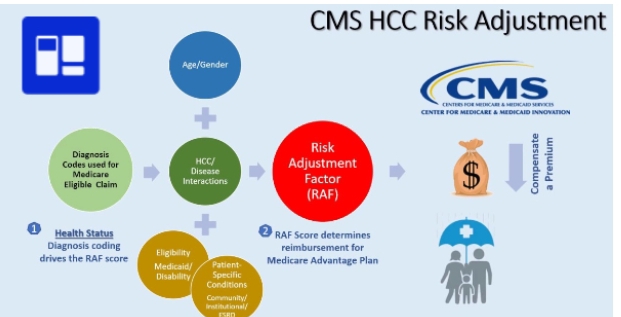Why Does Field Execution Matter in Retail?

In the dynamic world of retail, where customer demands, market trends, and competitive landscapes are constantly evolving, effective field execution is a critical component of success. But what exactly is field execution, and why does it matter in the retail industry?
This article delves into the essential aspects of field execution and explains its significance for retailers.
Understanding Field Execution in Retail
Field execution in retail refers to the process of implementing strategies, initiatives, and plans at the physical, on-the-ground level. It involves the efficient deployment of resources, such as personnel, inventory, and technology, to ensure that the retail strategy is executed as intended. The primary aim of field execution is to bridge the gap between corporate strategies and what actually happens in stores.
In a retail context, field execution encompasses a wide range of activities, including:
1. Store Layout and Visual Merchandising
- Optimizing the store layout to enhance customer experience.
- Implementing eye-catching visual merchandising displays to attract and engage shoppers.
2. Inventory Management
- Ensuring that the right products are in stock.
- Minimizing overstock and understock situations.
- Managing inventory turnover effectively.
3. Compliance and Auditing
- Ensuring compliance with corporate policies and industry regulations.
- Conducting regular audits to identify and address non-compliance issues.
4. Pricing and Promotions
- Executing pricing strategies and promotions as planned.
- Monitoring and adjusting prices in real-time to stay competitive.
5. Customer Service
- Providing excellent customer service.
- Addressing customer complaints and feedback promptly.
6. Reporting and Analytics
- Collecting and analyzing data to measure the success of field execution strategies.
- Using data to make informed decisions and improve future execution.
Now that we understand what field execution involves, let’s explore why it is so crucial in the retail sector.
The Importance of Field Execution in Retail
1. Customer Experience
In the retail world, customer experience is everything. How a customer feels when they enter a store, browse through products, and interact with staff can significantly impact their decision to make a purchase. Field execution plays a vital role in enhancing customer experience by ensuring that stores are well-organized, visually appealing, and staffed with knowledgeable and friendly employees.
Effective field execution involves the correct placement of products, clear signage, and ensuring that the store is clean and well-maintained. When customers have a positive shopping experience, they are more likely to return and become loyal patrons of the brand.
2. Inventory Management
Field execution directly influences inventory management. Keeping the right products in stock, at the right time, and in the right quantities is crucial for meeting customer demand and preventing stockouts. Effective field execution strategies help retailers avoid overstocking, which ties up capital, and understocking, which leads to lost sales opportunities.
By closely monitoring inventory levels, retailers can optimize their supply chain and reduce carrying costs. Field teams can make timely decisions on restocking, discontinuing slow-moving items, and identifying opportunities for cross-selling and upselling.
3. Compliance and Auditing
Retailers face numerous regulations and internal policies, from pricing accuracy to health and safety standards. Non-compliance can lead to hefty fines, damage to a brand’s reputation, and customer dissatisfaction. Field execution ensures that all stores adhere to these regulations and policies.
Through regular auditing and monitoring, issues can be identified and addressed promptly. For example, if a store is found to have pricing inaccuracies, corrective measures can be taken immediately, preventing customer complaints and potential legal trouble.
4. Pricing and Promotions
Retailers often rely on pricing and promotional strategies to attract and retain customers. Field execution is vital in ensuring that these strategies are implemented accurately. For instance, if a retailer is running a limited-time promotion, field teams need to guarantee that the promotion is visible in stores, the prices are adjusted correctly, and employees are informed about the campaign.
Real-time pricing adjustments are also critical in today’s competitive retail landscape. Field execution teams must be equipped to monitor competitors’ prices and make quick adjustments to remain competitive. A failure in this area can lead to lost sales and market share.
5. Customer Service
Exceptional customer service can turn a casual shopper into a loyal customer. Field execution ensures that employees are trained, motivated, and capable of providing top-notch service. It includes aspects like greeting customers, answering their queries, and addressing concerns effectively.
In addition, field teams can use customer feedback to improve service quality. Regular communication between field employees and headquarters can lead to the swift resolution of customer issues and the implementation of improvements in service and store layout.
6. Reporting and Analytics
Data-driven decision-making is a fundamental aspect of modern retail. Field execution teams collect valuable data during their activities, such as sales figures, customer feedback, and inventory turnover rates. Analyzing this data provides insights that can inform strategic decisions and drive improvements in execution.
Retailers can identify trends, strengths, and weaknesses through analytics and adapt their strategies accordingly. For instance, if a particular store consistently underperforms, data-driven insights can lead to changes in layout, staffing, or inventory management to enhance its performance.
The Role of Field Execution Services Providers
To effectively manage field execution, many retailers partner with field execution services providers like irisretailtech. These providers specialize in deploying field teams, collecting data, and implementing strategies on behalf of retail brands. The partnership with such providers is often crucial for success in today’s retail landscape.
Key roles played by field execution services providers include:
1. Expertise and Resources
Field execution services providers have the expertise and resources needed to implement strategies at the ground level. They have teams of professionals who understand the retail environment and can execute plans efficiently. This expertise saves retailers time and resources while ensuring the strategies are executed correctly.
2. Technology and Tools
Field execution services providers leverage technology and tools to streamline their operations. They use software for data collection, analysis, and reporting. This technology helps in real-time decision-making and ensures that the execution is aligned with the retail brand’s goals.
3. Flexibility
The retail landscape is ever-changing, and field execution services providers offer the flexibility needed to adapt to new situations. Whether it’s a sudden change in the market or the need to address a specific issue, these providers can quickly adjust their strategies to meet the retailer’s requirements.
4. Cost Efficiency
Outsourcing field execution to a specialized provider can often be more cost-effective than handling it in-house. Providers can scale their teams and resources according to the retailer’s needs, helping to optimize costs.
5. Data-Driven Insights
Field execution services providers excel in data collection and analysis. They can provide retailers with valuable insights into the performance of their strategies and suggest improvements. These insights enable retailers to make informed decisions for future planning and execution.
Optimizing Field Execution for Retail Success
Successful field execution in retail is a result of careful planning, efficient operations, and the use of data-driven insights. Here are some strategies and best practices to optimize field execution:
1. Clear Communication
Communication is key to ensuring that field teams are aligned with corporate strategies. Regular meetings and updates between headquarters and field teams help in sharing information and addressing any concerns promptly.
2. Comprehensive Training
Invest in training for field employees to ensure they are well-prepared to execute strategies. Training should cover areas such as customer service, compliance, and inventory management.
3. Real-Time Data
Leverage technology to provide field teams with real-time data. This enables them to make informed decisions on pricing, inventory, and customer service on the spot.
4. Performance Metrics
Establish clear performance metrics and Key Performance Indicators (KPIs) for field execution. These metrics should align with the overall retail strategy and provide a measurable way to evaluate success.
5. Continuous Improvement
Use data-driven insights to identify areas for improvement. Regularly review and adjust strategies and tactics to enhance execution and customer experience.
6. Feedback Loop
Encourage a feedback loop where field teams can share their observations and insights with the central office. This information can be invaluable in making improvements and addressing issues promptly.
7. Partner with Field Execution Services Providers
Consider partnering with a field execution services provider to benefit from their expertise and resources. These providers can offer scalability, cost-efficiency, and access to cutting-edge technology.
Conclusion
In the ever-evolving retail landscape, field execution plays a pivotal role in a retailer’s success. It bridges the gap between corporate strategies and on-the-ground reality, ensuring that customers have a positive shopping experience, products are readily available, and all compliance and pricing strategies are executed as planned.
By partnering with field execution services providers, retailers can harness the expertise, resources, and technology needed to excel in field execution. This partnership allows retailers to focus on their core competencies while ensuring that their strategies are executed with precision and efficiency.
In a world where data is king, field execution also provides a wealth of information that retailers can use to make informed decisions and continuously improve their operations. When executed well, field strategies can be a significant driver of retail success, creating a win-win situation for both retailers and their customers.
Read Also : Why Does Field Execution Matter in Retail?




